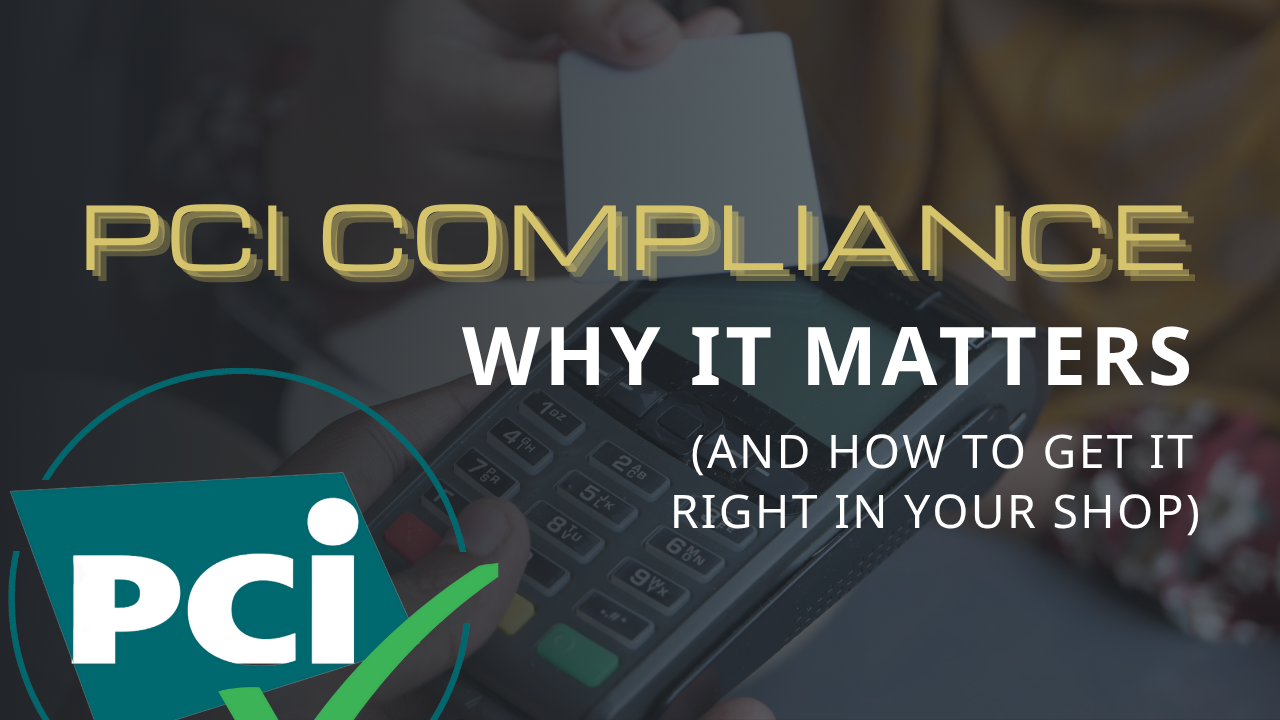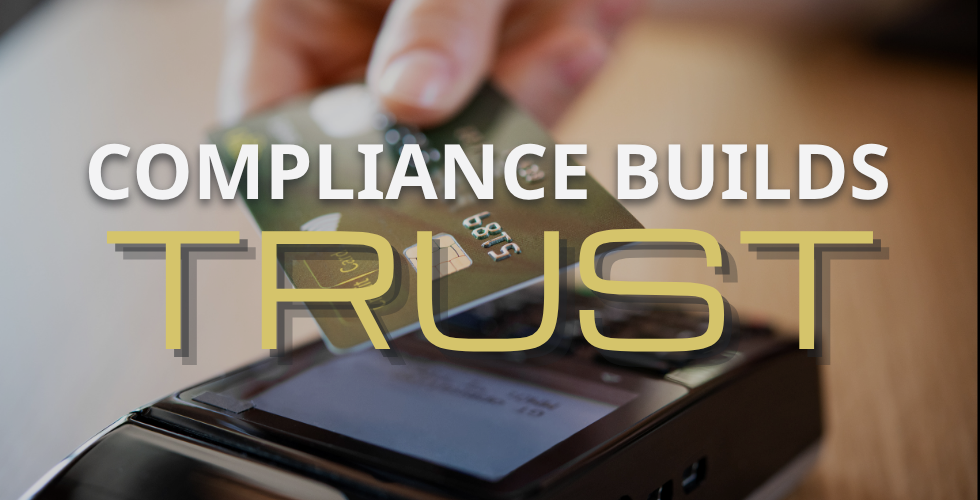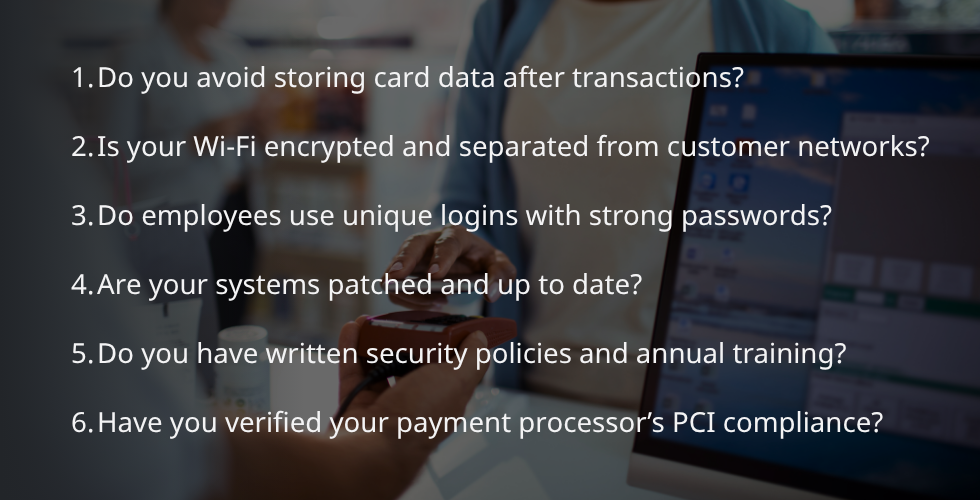
You might think you’re automatically within PCI compliance when using trusted sites. But that’s not necessarily the case. Even with platforms like Aftermarket Websites® or Aftermarket Payments™ that are fully PCI compliant, you’re still at risk. With every credit or debit transaction, shops must follow the Payment Card Industry Data Security Standards (PCI DSS).
Shop owners can’t sweep this requirement under the rug. Not only does it protect your shop, but it also protects your customers. Let’s break down what PCI compliance looks like, how to see if your shop is staying compliant, and some tools that can make managing it a little easier.
What does PCI compliance actually mean?
PCI compliance is a globally recognized set of security standards established by major credit card companies to ensure safe card transactions. Basically, it’s the rulebook that keeps customer payment data protected.
Why does compliance matter?
You might be questioning why this is so important. Well, besides avoiding fines and penalties…

Customers trust you to store their information safely. One data breach could cost you both customers and revenue.
There goes that customer and your reputation. Compliance isn’t just protection; it’s professionalism.
Here are a few best practices that keep your business safe.
Protect Cardholder Data
- Never store full credit card numbers, expiration dates, or CVVs after a sale.
- If you must keep card data, such as for recurring billing, ensure it’s encrypted and secured.
- When displaying card information, only show the last four digits.
Maintain a Secure Network
- Protect your POS system with a firewall.
- Change factory default passwords on routers, payment terminals, and Wi-Fi.
- Keep your payment Wi-Fi network separate from customer or guest Wi-Fi.
Implement Strong Access Controls
- Limit access to cardholder data to only those who truly need it.
- Give every employee a unique login, no shared accounts.
- Require strong passwords with letters, numbers, and symbols.
Regularly Monitor and Test Systems
- Keep detailed logs of who accesses your payment systems and when.
- Update your POS software and terminals regularly.
- Run annual security scans or vulnerability tests to stay ahead of threats.
Maintain an Information Security Policy
- Create a written policy for handling payment card data.
- Train employees every year on safe payment handling and skimmer awareness.
- Establish a response plan for suspected data breaches before one happens.
Vet Your Third-Party Providers
- Confirm that your payment processors and gateways, such as Square, Stripe, or PayPal, are PCI compliant.
- Keep copies of their compliance certificates or contracts on file.
Is your shop in compliance?
Ask yourself these questions. Is there anywhere you fall short?

Mostly “Yes” answers: You’re in good shape, just close any small gaps.
Several “No” answers: It’s time to act. Review PCI DSS guidance or talk with your payment provider.
Many “No” answers: You’re at real risk. Schedule a professional PCI review as soon as possible.
Here’s how to make PCI compliance a little easier.
Both our platforms, Aftermarket Websites® and Aftermarket Payments, are PCI compliant on their own. They help your business stay secure with reliable transaction management. More importantly, they ensure the entire payment process is easier for you, your team, and your customers.
With all the warnings and rules, it can feel a little daunting to look at your compliance. But it doesn’t have to be. Schedule a demo with Aftermarket Websites® or Aftermarket Payments to learn how these tools can take out the stress, reduce your shop’s risk, and make your life easier.







